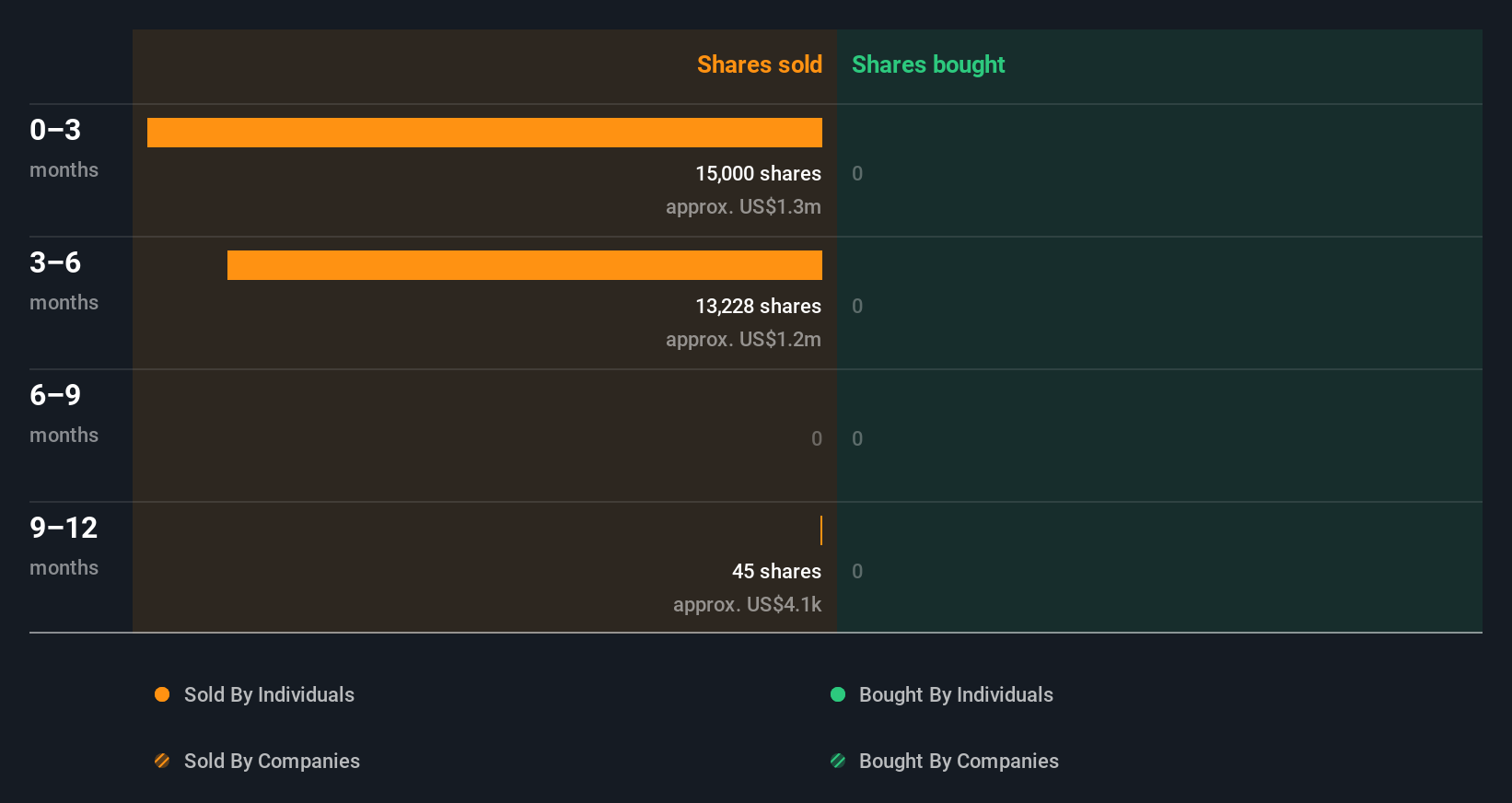Ingersoll Rand Insiders Sold US$2.4m Of Shares Suggesting Hesitancy
The fact that multiple Ingersoll Rand Inc. (NYSE:IR) insiders offloaded a considerable amount of shares over the past year could have raised some eyebrows amongst investors. Knowing whether insiders are buying is usually more helpful when evaluating insider transactions, as insider selling can have various explanations. However, shareholders should take a deeper look if several insiders are selling stock over a specific time period.
While we would never suggest that investors should base their decisions solely on what the directors of a company have been doing, we do think it is perfectly logical to keep tabs on what insiders are doing.
Ingersoll Rand Insider Transactions Over The Last Year
Over the last year, we can see that the biggest insider sale was by the Senior VP, Andrew Schiesl, for US$1.2m worth of shares, at about US$87.05 per share. So we know that an insider sold shares at around the present share price of US$82.52. While insider selling is a negative, to us, it is more negative if the shares are sold at a lower price. In this case, the big sale took place at around the current price, so it's not too bad (but it's still not a positive).
Ingersoll Rand insiders didn't buy any shares over the last year. You can see a visual depiction of insider transactions (by companies and individuals) over the last 12 months, below. If you want to know exactly who sold, for how much, and when, simply click on the graph below!
Check out our latest analysis for Ingersoll Rand

If you like to buy stocks that insiders are buying, rather than selling, then you might just love this free list of companies. (Hint: Most of them are flying under the radar).
Ingersoll Rand Insiders Are Selling The Stock
Over the last three months, we've seen significant insider selling at Ingersoll Rand. Specifically, insiders ditched US$1.3m worth of shares in that time, and we didn't record any purchases whatsoever. This may suggest that some insiders think that the shares are not cheap.
Does Ingersoll Rand Boast High Insider Ownership?
Many investors like to check how much of a company is owned by insiders. Usually, the higher the insider ownership, the more likely it is that insiders will be incentivised to build the company for the long term. It appears that Ingersoll Rand insiders own 0.2% of the company, worth about US$81m. We've certainly seen higher levels of insider ownership elsewhere, but these holdings are enough to suggest alignment between insiders and the other shareholders.

So What Do The Ingersoll Rand Insider Transactions Indicate?
Insiders sold Ingersoll Rand shares recently, but they didn't buy any. Looking to the last twelve months, our data doesn't show any insider buying. On the plus side, Ingersoll Rand makes money, and is growing profits. Insiders own shares, but we're still pretty cautious, given the history of sales. We'd practice some caution before buying! In addition to knowing about insider transactions going on, it's beneficial to identify the risks facing Ingersoll Rand. Case in point: We've spotted 1 warning sign for Ingersoll Rand you should be aware of.
Of course, you might find a fantastic investment by looking elsewhere. So take a peek at this free list of interesting companies.
For the purposes of this article, insiders are those individuals who report their transactions to the relevant regulatory body. We currently account for open market transactions and private dispositions of direct interests only, but not derivative transactions or indirect interests.
Have feedback on this article? Concerned about the content? Get in touch with us directly. Alternatively, email editorial-team (at) simplywallst.com.
This article by Simply Wall St is general in nature. We provide commentary based on historical data and analyst forecasts only using an unbiased methodology and our articles are not intended to be financial advice. It does not constitute a recommendation to buy or sell any stock, and does not take account of your objectives, or your financial situation. We aim to bring you long-term focused analysis driven by fundamental data. Note that our analysis may not factor in the latest price-sensitive company announcements or qualitative material. Simply Wall St has no position in any stocks mentioned.
 Wall Street Journal
Wall Street Journal